Reading
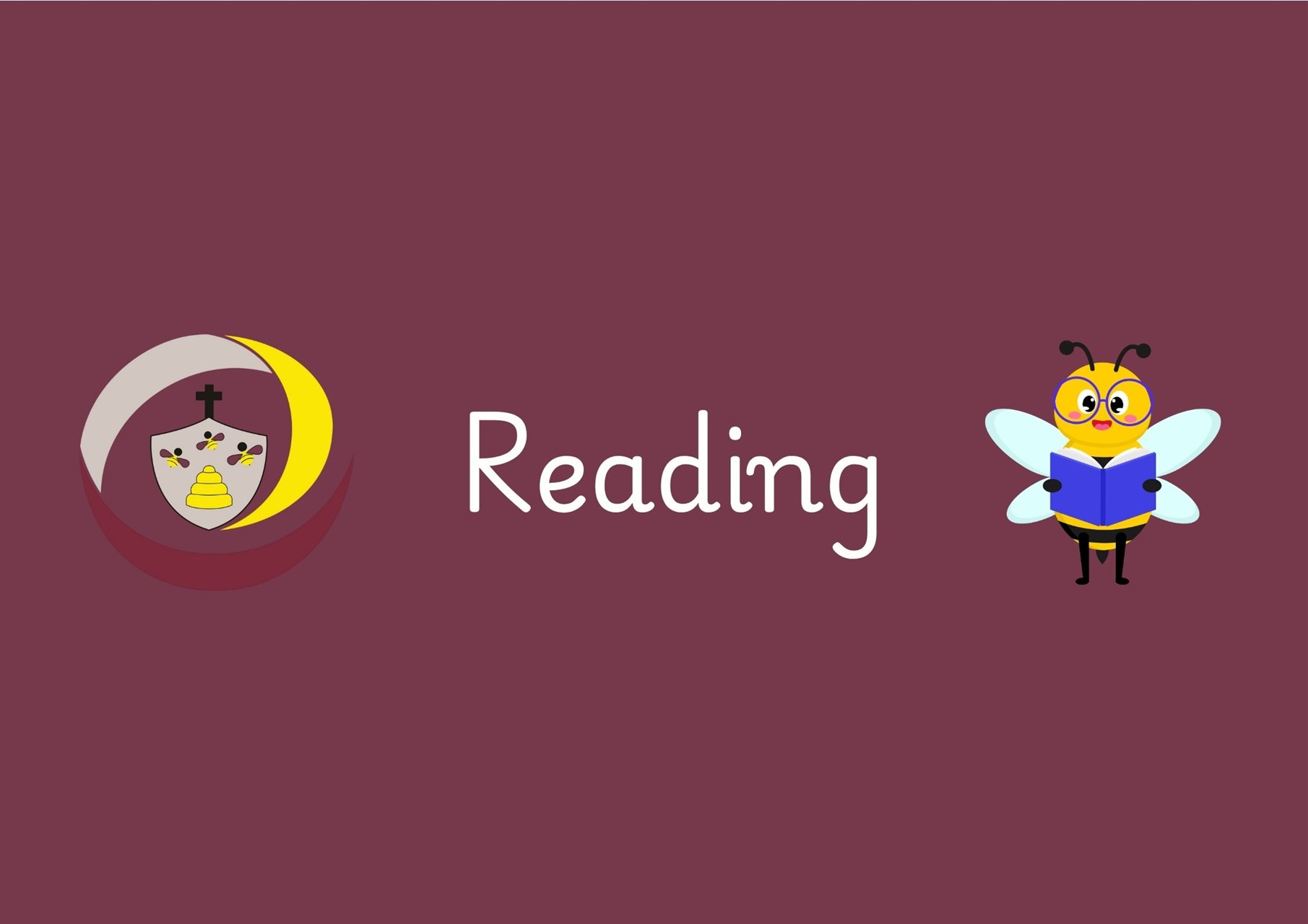
Reading at St Ambrose: Inspiring Lifelong Readers
At Saint Ambrose, we want our children to develop a deep love and appreciation for the written word. Reading opens doors to imagination, knowledge, and understanding, helping pupils explore diverse stories, voices, and ideas that inspire them to grow as confident, thoughtful learners.
Intent, Implementation and Impact
Our Intent:
We value reading as a key life skill and are dedicated to enabling our children to be life-long readers.
We want all our children to gain the skills needed to read with fluency and confidence to become avid readers – reading for pleasure and information.
Children will acquire a wide vocabulary, an understanding of grammar and knowledge of linguistic conventions for reading.
Our Implementation:
The development of literacy skills across the curriculum will be implemented according to the following guidelines:
Impact:
Children embed knowledge and use it fluently.
Children are able to confidently read with fluency in line (at least) with their peers nationally. As a result, they can therefore access all subjects across the curriculum with confidence and enjoyment.
Children’s vocabulary is improved across the school and is extensive by the end of Year 6. This is seen in class discussions, understanding of passages in texts and in written pieces of writing.
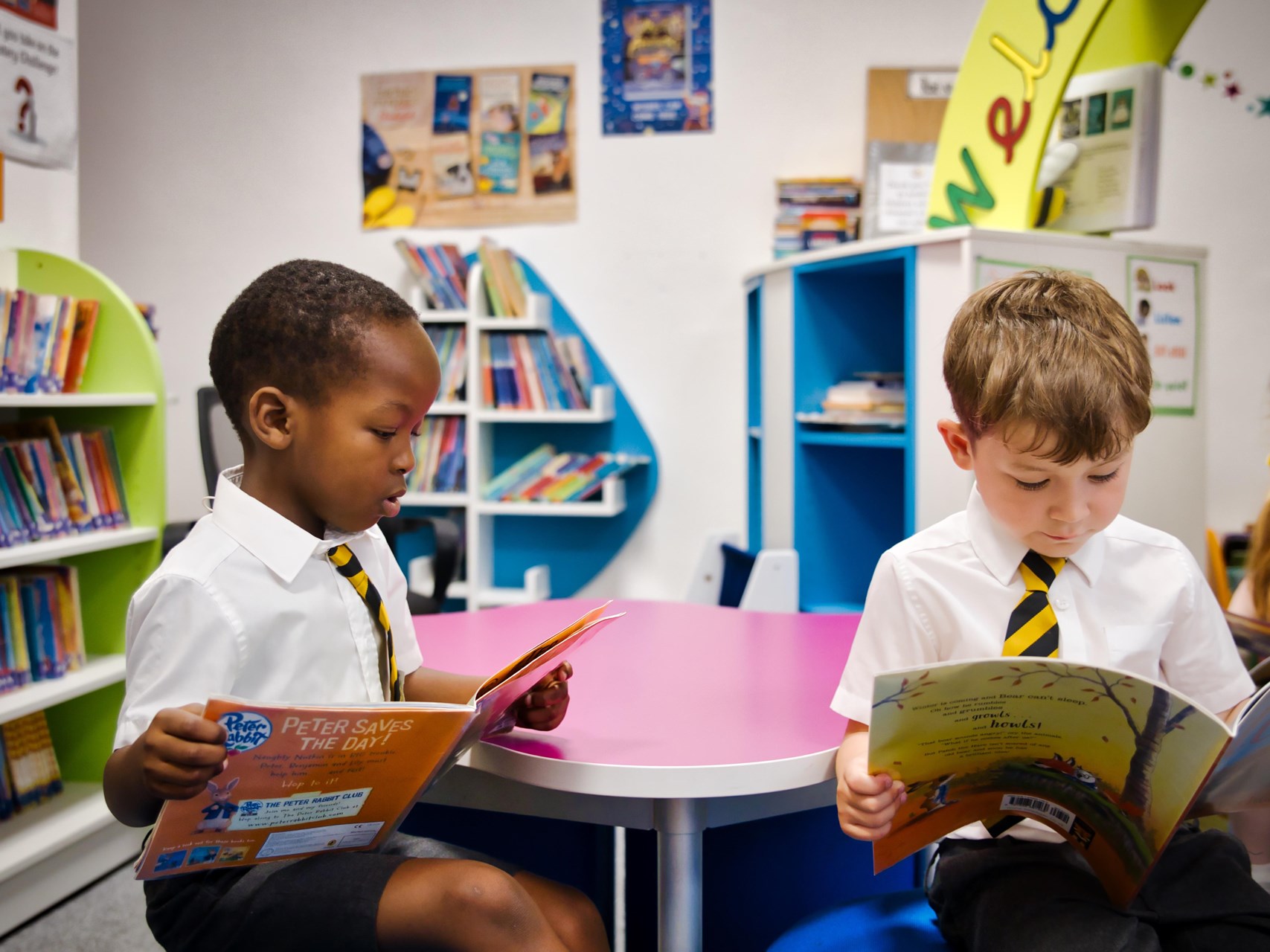
Phonics

In Phonics, St Ambrose follow the Read Write Inc Phonics programme by Ruth Miskin. This programme is a method of teaching reading which is centred around learning the sounds of the letters (phonics), and then blending them together to read words. Following this method of teaching also provides children with the opportunity to learn to break down words into individual sounds in order to write them.
Using Read Write Inc the children learn to read effortlessly so that they can put all their energy into understanding what they read.
When using 'Read Write Inc' to read the children will:
Learn 44 sounds and the corresponding letter/letter groups using simple picture prompts.
Learn to read words by blending the sounds together
Read lively stories featuring words they have learnt to sound out
Show that they understand the stories by answering 'Find It' and 'Prove it' discussion questions.
'They will gather around them a great number of teachers to say what their itching ears want to hear.'
Timothy 4: 4

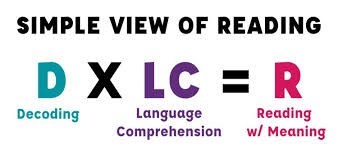
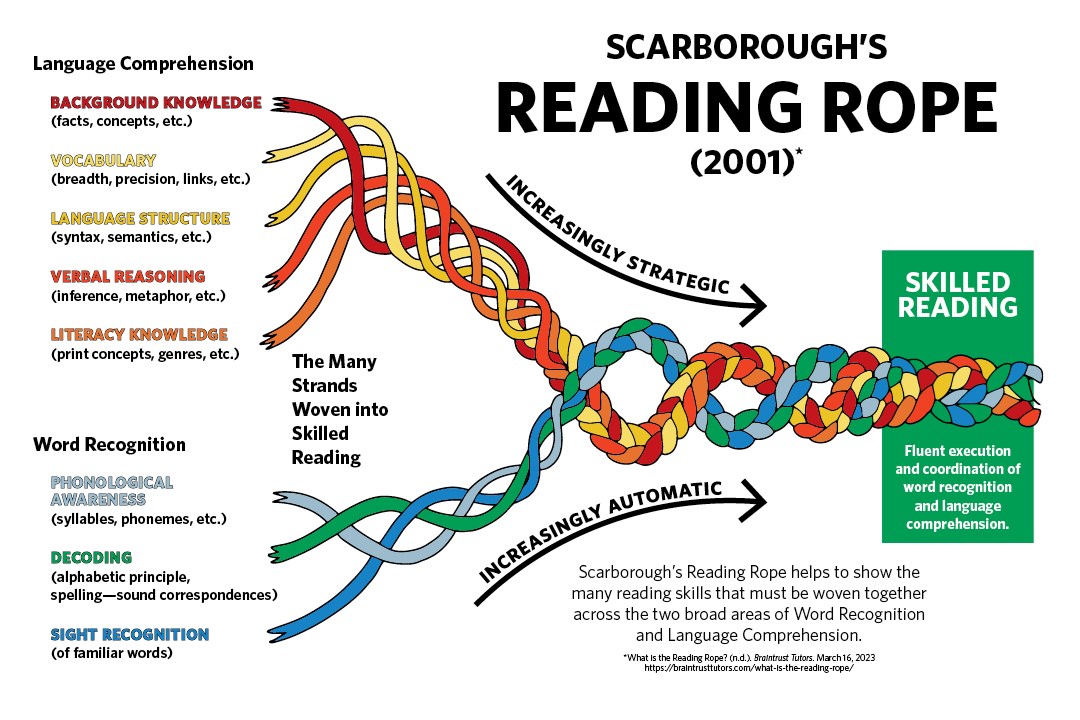
Research Review Series English
'More than any other subject, English – and especially reading – gives pupils access to the rest of the curriculum and is fundamental to their educational success.'
KS1 Reading Domains:
1a - Vocabulary
1b - Retrieval
1c - Sequencing
1d - Inference
1e – Prediction
KS2 Reading Domains:
2a - Word Meaning (Vocabulary)
2b - Retrieval
2c - Summarising and Sequencing
2d - Inference
2e - Prediction
2f - Whole Meaning (Explain)
2g - Word Choice (Explain)
2h – Comparison (Explain
A typical whole class reading lesson
1 Get ready:
Discuss the key vocabulary identified in the Language toolkit and then complete the vocabulary activities.
2 First Steps:
Read the text together and then encourage the children to discuss the questions.
3 Explore:
Model appropriate pace, fluency and expression. In KS2, this could be one or two paragraphs then pupils read the remainder of the text individually. Pupils underline or circle words they do not understand the meaning of. These word meanings could then be discussed as a class and/or pupils could use a dictionary to clarify their meaning and create a glossary.
4 Skills Focus: Modelling:
Model the skill. E.g. modelling retrieval using the modelling slides.
5 Comprehension questions: Pupils to complete the questions and the mix up questions.
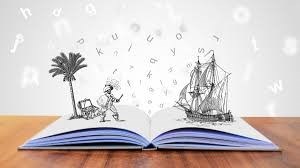
Using our 'Kiva'-Outdoor reading den
Reading in our Library.
Reading in Class.
Enriching reading
Our Michael Rosen Day was a joyful celebration of storytelling, poetry, and the power of words. Throughout the day, children explored the playful, imaginative style that makes Michael Rosen’s work so beloved. From performances of ‘Chocolate Cake’ to shared readings of his funniest poems, pupils were reminded that reading is not just a skill it is something to enjoy, savour, and laugh along with.
Classes took part in creative activities inspired by Rosen’s writing, including poetry workshops, performance reading, rhythm games, and opportunities to create their own Rosen-style poems. These activities encouraged pupils to see reading as something exciting and expressive, helping them understand that stories come alive when we add our own voices, actions, and ideas.
The day helped to enrich our whole-school love of reading by showing children that books can be fun, silly, moving, and full of surprises. Many pupils discovered new favourite poems and left feeling inspired to read more at home and in school. Teachers reported increased enthusiasm in reading lessons, with pupils eagerly choosing poetry books and asking to perform their favourite pieces to the class.
Michael Rosen Day reminded us that reading is a gift we share as a community a way to connect, to imagine, and to celebrate language together. It was a wonderful opportunity to strengthen our reading culture and ignite a lifelong love of stories in every child.
What our school community say about Reading
"I don't just like reading, I love it."
"Reading takes you to new places."
"Books are better than films because they give more details and you can imagine more."
"We have loved the library sessions, please can we have more." (Parent)
Reception Pupil: I love saying 'good morning' to Fred the Frog and speaking in 'fred talk'.
Year 1 Pupil: I love looking at the speed sound chart and seeing all the different sounds.
Year 2 Pupil: I like reading my phonics book with my partner and building up fluency the more times we do it.
Reading at St Ambrose

At St Ambrose we use fully decodable resources to establish confident readers in Key Stage 1. The books provide our children with a rich and varied choice of writing styles, genres and artwork styles to enjoy.
We use the Read Write Inc book bag books designed to support the teaching of reading in class and to ensure that when a child takes a book home they can read it successfully, build confidence and make progress.
In Key Stage 2 children read levelled Oxford Reading Tree banded non-fiction and fiction books to ensure that each child continues to get a varied and appropriately challenging reading diet. Each level introduces new things and practises the skills and knowledge learned in the previous levels with age appropriate content.

Boom reader is a digital reading record used by teachers, parents and pupils to log reading.
Go contactless! Boom reader removes the need for paper copies of reading records. No more back and forward, and no more lost record books!
Children can also add home books to their 'Boom reader' account. We would love to see what books your child is interested in reading at home.
Please watch the following videos to see how you can help you child read at home.
Our Library

At St Ambrose we understand the importance of developing a love of reading across the school because we are fully aware that the more children read, the more knowledge they absorb, and knowledge is important in all aspects of life.
To support a love of reading, we have a vibrant library full of exciting new books that children are encouraged to loan out and are they helped to choose books by our Key Stage Two librarians.
In Key Stage Two, each classroom also has their own mini library of reading books that children are welcome to choose to read alongside the reading scheme books and they are also encouraged to read a range of material outside of school e.g. newspapers and comics.



What our community says about reading at St Ambrose...
"I don't just like reading, I love it." (Reception)
"Reading takes you to new places." (Year Four)
"Books are better than films because they give more details and you can imagine more." (Year Six)
"We have loved the library sessions, please can we have more." (Parent)
"Thank you for the reading workshop, it was very informative. The handouts will be useful." (Parent)
"It was lovely to get to see the classroom. It was good to learn what they are doing in reading in school so I can replicate it at home." (Parent)
Library Events
"I don't just like reading, I love it." (Reception)
"Reading takes you to new places." (Year Four)
"Books are better than films because they give more details and you can imagine more." (Year Six)
"We have loved the library sessions, please can we have more." (Parent)
Year 5 pupils launched a lunchtime book club for Key Stage One children and introduced it in an assembly.
National Poetry Day
2025-Theme of Play
2024-Theme of Refuge.
All classes recited a poem to celebrate National Poetry Day. This years theme was 'Refuge' and throughout the assembly children respectfully listened to each year group. All children were clear in voice and worked brilliantly in year group teams to perform either a poem they had learnt or had written. Well done everyone. Please see below for the list of poems that were performed.
| Reception | Year One | Year Two | Year Three | Year Four | Year Six | Year Six |
| On the Move again by Michael Rosen | My Treasures by Kate Wakeling | We are Six by AA Milne | On the Move again by Michael Rosen# | Acrostic poems of the word Refuge | Own poems on Refuge | Refugees by Brian Bilston |
The more that you read, the more things you will know.
The more that you learn, the more places you’ll go.”
Dr Seuss